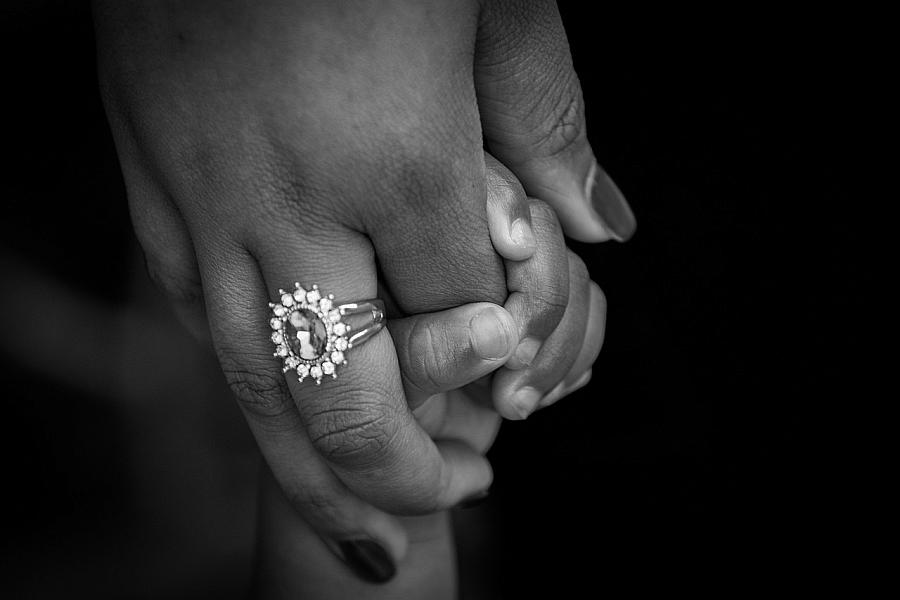Washington, D.C.’s Black infant mortality crisis is not getting the attention it deserves

Image by Pexels via Pixabay
A few years ago, I reported about Black maternal mortality and how deep the problem was in Washington, D.C. As I was chatting with a program director, she posed a question: What about the babies? The question stuck with me, and when it was time to propose a project idea for the National Fellowship, it resurfaced. We are in the wake of an incredible movement in the United States. There is a steady rally cry to save Black mothers from dying during or after pregnancy. I’m encouraged by this. But what about the babies?
Between 2014 and 2020, the District has lost more than 300 Black infants before their first birthday. According to our local health department report, the infant mortality rate from 2016 to 2020 was three to five times higher among non-Hispanic Black infants compared to Hispanic and non-Hispanic white infants, respectively. The first part of my series offered an overview of the problem: the causes, the contributing factors, and how it connects to structural racism. Part two took a deeper look at the stillbirth crisis and why this problem doesn’t get a lot of attention.
In order to report this series written from a frontline perspective, I hit the streets. Beat reporting is the best way to get a true pulse on any issue. Thanks to a community engagement grant from the Center for Health Journalism, I was able to host a breakout session at Mayor Muriel Bowser’s National Maternal and Infant Health Summit in September. Along with a certified grief therapist, I held a listening session for Black parents who have lost infants. It was so informative. I met with several advocates, health care professionals, and parents to hear what their concerns are and what could be done to help them better. Many people thanked me afterwards, which indicated to me that this type of space was sorely needed.
A few weeks later, I went to an event at a local hospital called the Little Lives Remembrance Day. I observed and interviewed a well-known social worker named Yolanda King who works tirelessly with grieving parents in the hospital. Every year she hosts a celebration of life event for the parents she has helped in the wake of their loss. They planted a flower for their baby in the garden, reflected, cried and exchanged hugs and words of encouragement. Although the mood was solemn, it felt like a family reunion. These families have been coming to this event for years, so they knew each other well. So many mothers, grandparents, uncles, and siblings came to remember their loved one and thank Ms. King for her continuous support.
Later in October, I joined a Black mother and her family who lost her son at age 6 months during the National Remembrance Walk and Candle Lighting Ceremony on the National Mall. It was another opportunity to talk to parents who have lost infants and hear their voices. This mom had decided to turn her pain into advocacy by becoming the leader of the D.C. chapter of the Tears Foundation, which supports families who have lost an infant. The mother said she never wanted another parent to experience this kind of pain. It was an honor to be present. These conversations were absolutely critical to my reporting.
There are many people who care deeply about Black infant health in this city. I spoke to over two dozen experts, local and national advocates, midwives, doulas, nurses, data experts and policymakers about this crisis. They were eager to speak with me, share information, and connect me with others. They were very encouraged to hear about my reporting and each one of them implored me to keep going.
My biggest obstacle was getting the cooperation of my local health department and medical examiner’s office. I repeatedly requested data and comments about this issue, only to be stonewalled. I was frustrated. In the end, I had to get assistance from a health statistician at the National Center for Health Statistics at the Division of Vital Statistics under the CDC. That source was excellent, but I really wanted to keep this as hyperlocal as possible. I hope that my reporting will show the importance of accountability.
What disappointed me was the absence of support for parents who must endure this horrendous and unique loss at the end of a beautiful journey. The mothers I spoke with all said that at some point people stopped calling to check on them. They felt like no one would understand their pain if they shared what they were going through. Two of the moms said to me “if my child was shot, there would be plenty of help. Why can’t I get some support? I lost a child too.” That spoke volumes. I was also disappointed to find that in a well-resourced city like Washington, D.C. there is no comprehensive plan on how to directly address this issue. This is why my reporting matters. These families deserve better. My series is a call to action.
What encouraged me though was that there are a few strong, steadfast nonprofit organizations entrenched in the community, working to prevent this crisis by providing the best prenatal and perinatal care. They are on the frontlines. from pregnancy through the first birthday, helping those parents get through the early days of parenthood. Part three of my series features them and their incredible work. They are truly the hope we need in this city.
I will continue reporting on Black infant and maternal health for as long as editors will publish me. It’s more than highlighting an issue. It’s about creating a lifeline for people who need a safe space to breathe out, and saving Black infants one heartbeat at a time.

